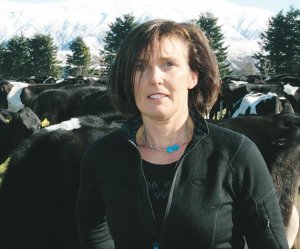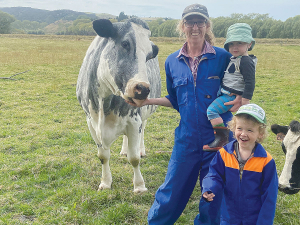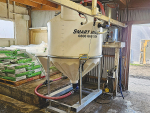Governance during Fonterra’s five-year attempted restructure has been reactionary, and the scramble to ‘eliminate redemption risk’ has morphed to a scramble to ‘discover price’. Apparently, we need ‘the market’ to define our cooperative share value and to encourage members to cash in their cooperative shares to seed the fund that will determine this price.
This is a shift from the fundamental cooperative principles that serve the producer so well.
Cooperative share ownership linked to milk supply is fundamental because cooperative shares exist to ensure milk is collected, processed and marketed to maximise return to the farmer.
Farm profitability is maximised by prioritising milk price and profitable farmers will keep the co-operative’s stainless steel full.
I have no problem with investment in cooperatives, but they should not serve as an ‘investment vehicle’ ahead of serving those production needs.
Should investment needs start to take priority over production needs, farmers’ commitment to the cooperative purpose becomes skewed.
TAF (trading among farmers) and the new constitution will allow farmer shareholdings of up to double that required to back milk production. So a producer of 200,000kgMS may own 400,000 shares. It sows the seeds of change in cooperative thinking.
Take the scenario of low commodity prices, increasing interest rates and a farmer who is indebted but owns a significant number of dry shares.
He’ll be under financial pressure and if one farmer is under pressure, it is highly likely many will be.
They will lobby their board to increase the size of the fund, the mechanism for cashing-in dry shares.
Even those without dry shares may be tempted, or pressured, to sell the economic rights to their shares if their economic circumstances (or bank) dictate it. That’s just one obvious example of how we could gradually demutualise our cooperative.
Dr Onno Van Bekkum, cooperative strategist, makes the point as follows. “It might seem unlikely that a 75% majority of farmers would vote for a relaxation in any limits or controls. However, a future vote would be taken from a future perspective – one influenced by shifts in interest from producer to investor interest. Farmers thinking individually as investors in future would take a different approach from farmers thinking collectively as producers today.”
The Fonterra Shareholders Council took a firm position, apparently representing farmers, in sanctioning a high risk proposal – TAF.
They supported it based on controls on fund size being in place, yet failed to recognise one of the key drivers of fund size is the disconnect between milk supply and share ownership which dry shares engenders. The council now seems ambivalent on whether the controls advocated for were written into our constitution before the fund launch.
Having met the council earlier this month, the most disturbing thing was councillors’ questioning and logic. The redemption risk argument has been proven flawed: TAF doesn’t solve it.
The council now seems firm in its belief that ‘price discovery’ is an essential purpose of TAF, to ensure the market discovers a good price to allow those that would, to cash out. Why is our council so supportive of behaviours that incentivise exit from and disincentivise entry to our cooperative?
If the council is representative of Fonterra’s farmer shareholder views, it seems the seeds of cooperative demutualisation have already germinated.
Much has been made of the fact ‘investors’ in the fund will not have voting rights, but farmers themselves will effectively demutualise the cooperative when economic drivers, set up by TAF, push them there.
Frustratingly, every scenario under TAF points to pressure to increase the fund size coming from farmers.
A low share price, below the company’s intrinsic value, would see arguments that the market must expand to improve ‘liquidity’ and realise the true value; a high milk price putting pressure on dividend could depress share price and trading, leading to pressure to relax controls and stimulate trading and price ‘discovery’; a low milk price and high dividend would typically mean high share prices at a time when, because of the milk price, farm balance sheets would be under pressure. Easy maths on that scenario.
The fact is, once the purpose of the cooperative share has changed, it is very difficult to protect the cooperative for future generations from farmers wanting to increase the fund size to look after their own interests short-term.
The most effective protection now is for the council to recognise that the number of dry shares any farmer can own will drive fund size. We need much lower limits on this, written into the constitution.
Unless the council shows more definitive action on the risks they are responsible for mitigating, I suspect we are already beyond the point of no return on ownership and control of our cooperative.
* Facebook: A lesson for cooperatives posted Sep 7 on www.nz.coop
• Leonie Guiney is a South Canterbury dairy farmer.








